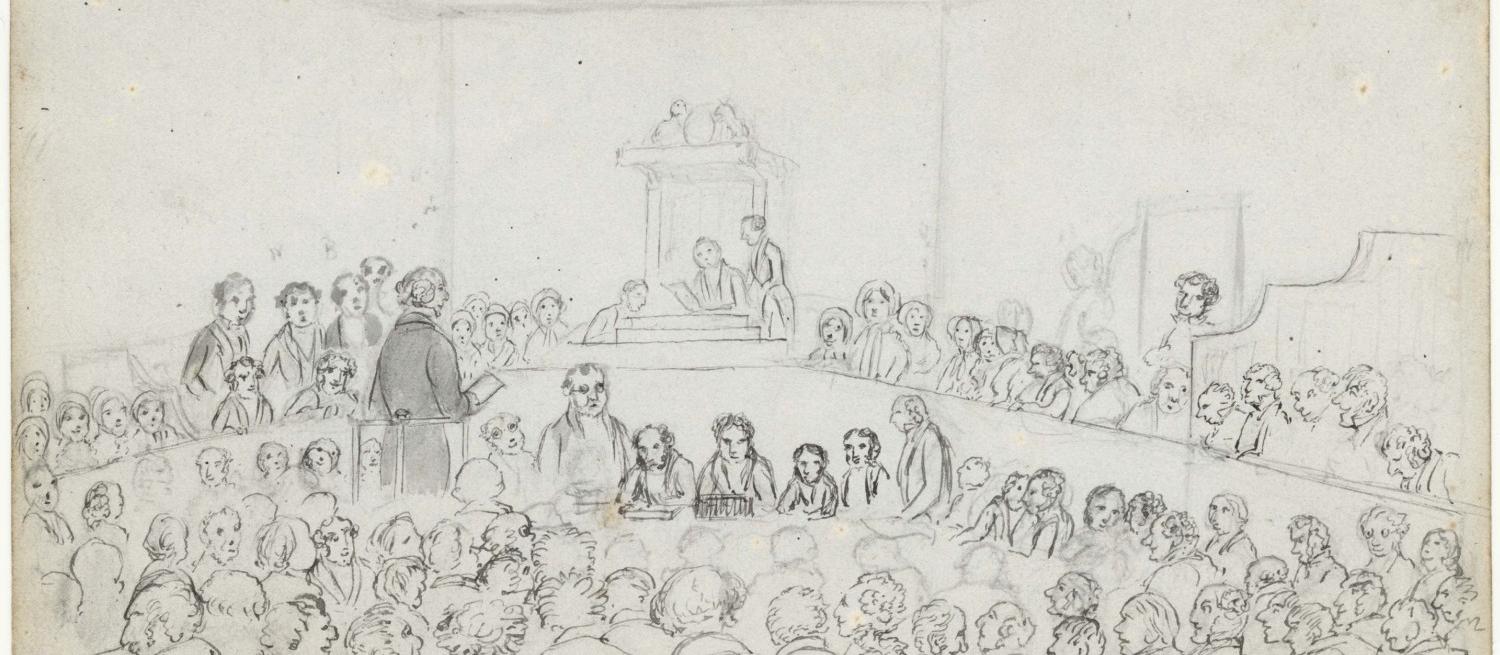In 1851 there was a political scandal in St Albans when it emerged that most of the votes in a by-election had been bought. The image above shows the parliamentary commissioners at work in the courtroom of St Albans town hall. The drawing comes from John Henry Buckingham’s sketchbook, which is part of the Museums Service’s collection.
The successful candidate in the St Albans’ by-election, Jacob Bell, was found to have spent £2,500 on his election campaign, a large proportion of which was used by his agent to buy votes. His actions were not unusual. William Hogarth’s Humours of an Election illustrates this kind of corruption in the mid 18th century and, despite the Great Reform Act of 1832, old habits continued well into the 19th century.
In 1841 there were 7,000 inhabitants in the borough of St Albans and only 483 of them were entitled to vote. The Report of the Commissioners to inquire into the Existence of Bribery in the Borough of St Albans, published in 1852, found that of 308 of the voters took money. The going rate was £5 a vote but some were paid less and some more. All the voters were men but the Commission called at least five women as witnesses; Mrs Frances Webb, Mrs Haggar, Mrs Hopkins, Maria Warren and Mary Cox. These women admitted accepting money, apparently to secure the vote of their husband or, in the final case her son. Alderman Carden, the unsuccessful opponent of Jacob Bell, is quoted in the Commission’s report; “A man’s politics in St Albans is his breeches pocket.” The end result was disenfranchisement for St Albans, in other words the loss of the town’s MP until 1885.
The matter was widely reported in the national press. For instance, on 22nd November 1851 the magazine Punch included a poem:
Voters and Bloaters
Why are St Albans Voters like unto Yarmouth Bloaters?
Because both are for sale: and the nation
Will pronounce that the Bloaters
As much as the Voters,
Are worthy of representation.
There is a partial copy of the Commission’s report in the local studies section of St Albans Library. The official papers are held in the National Archives (HO 45/3476 COMMISSIONS (TEMPORARY): St. Alban's Bribery Commission).
